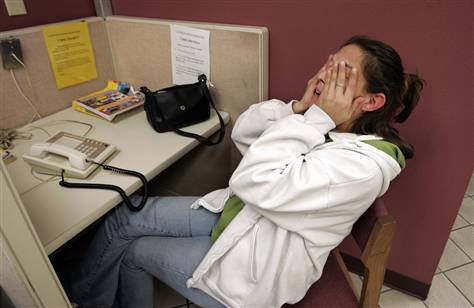Recession increasing number of Californians lacking health insurance and living in poverty

A U.S Census Bureau report released last week showed that the number of Californians living in poverty rose to 15.3 percent – totaling 5.6 million people – in 2009, up from 14.6 percent in 2008 and 12.7 percent in 2007. Nearly 2 million of those living in poverty are children. The report also showed that 20 percent of Californians lacked health insurance, up from 18.6 percent in 2008. As compared to the nation as a whole, California is suffering more from the severe economic downturn. While the nation’s poverty rate hit its highest level since 1994, the rate was a full percentage point lower than California’s at 14.3 percent.
Unfortunately, these numbers do not reflect how many of California's residents and families are truly struggling. The federal poverty level (FPL) is calculated based on the cost of food and does not include housing, transportation, medical care, nor the regional differences in the cost of living. In 2009, the federal poverty level was defined as approximately $11,000 in annual income for a single person under 65 and nearly $22,000 in annual income for a family of four (two adults and two children). In calculating FPL, what constitutes poverty in Mississippi is exactly the same as in California and in no case does the FPL reflect the basic costs incurred by people’s in their lives.
For example, meeting the basic needs of California’s seniors is twice as high as the federal poverty level. UCLA calculated and released its Elder Index - a measurement of the cost of basic expenses for California residents age 65 and older including housing, food, medical care and transportation. Using the Elder Index, 1.8 million of California’s 4 million seniors could not meet their basis needs in 2007, but only eight percent had incomes below the federal poverty level. These numbers have surely increased as a result of the recession.
As for health insurance, the news is just as grim. With the state’s unemployment level reaching 12.4 percent in August and the cost of health insurance increasing each year, millions of Californian’s have lost their health insurance. Currently, 11 percent of children under age 18 and 22.1 percent of seniors over age 65 have no health insurance. Only 49.9 percent of people under age 65 have health insurance through their employer.
While partisan bickering in Washington has seemingly brought everything to a standstill, action by Congress and the White House this year have and will stop some of the bleeding. In fact, the Urban Institute found that the extension of unemployment kept 3.3 million Americans out of poverty. As for health insurance reform, important provisions are already underway. Currently, young people can stay on their parents’ health insurance policy until they reach age 27 and Californians who have been denied coverage due to a pre-existing condition are now eligible to apply for health insurance coverage through the Pre-Existing Condition Insurance Program.
Beginning this week, one of the most popular provisions will go into effect. On September 23rd, health insurance companies will no longer be allowed to deny someone coverage due to a pre-existing condition.



